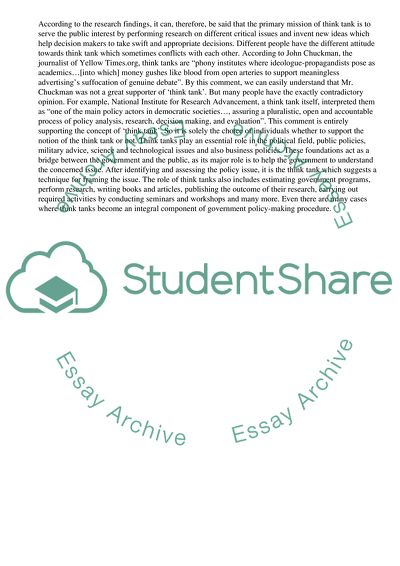Cite this document
(Think Tanks Research Paper Example | Topics and Well Written Essays - 2500 words, n.d.)
Think Tanks Research Paper Example | Topics and Well Written Essays - 2500 words. Retrieved from https://studentshare.org/management/1724457-think-tanks
Think Tanks Research Paper Example | Topics and Well Written Essays - 2500 words. Retrieved from https://studentshare.org/management/1724457-think-tanks
(Think Tanks Research Paper Example | Topics and Well Written Essays - 2500 Words)
Think Tanks Research Paper Example | Topics and Well Written Essays - 2500 Words. https://studentshare.org/management/1724457-think-tanks.
Think Tanks Research Paper Example | Topics and Well Written Essays - 2500 Words. https://studentshare.org/management/1724457-think-tanks.
“Think Tanks Research Paper Example | Topics and Well Written Essays - 2500 Words”, n.d. https://studentshare.org/management/1724457-think-tanks.


